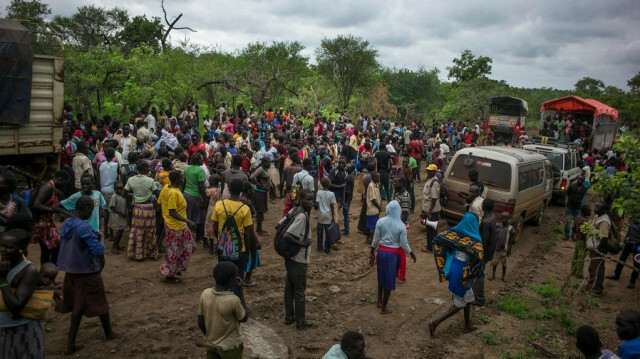
Refugees returning to their homes in South Sudan following the end of the years' long conflict are disappointed by the lack of basic services, so much so that many of them are preferring to go back to live in camps in nearby Uganda rather than in their villages in Eastern Equatoria province.
Seeking help from the international community, Governor of Eastern Equatoria State Louis Lobong Lojore said lack of basic services was impeding the rehabilitation of displaced people in their homes. These people had fled to avoid conflict that had ravaged the region since December 2013.
Eastern Equatoria had witnessed the highest number of refugees returning to their homes, signifying the return of peace. The governor said that most of the refugees are now going back to refugee camps for want of basic services.
“In the refugee camps (in Uganda) they were given food and had access to medicines and education for their children. They lack all these things at their homes of origin,” said Lobong.
Since the warring parties signed a peace agreement in September 2018, some 500,000 people living in the refugee camps in Uganda had returned to their homes.
“The returnees complain that nobody is taking care of them in their home,” added Lobong.
The Magwi County had witnessed a maximum number of families returning and building their lives.
Onyango Moses, 30, who is among those who returned from refugee camps in Adjumani district of neighboring Uganda said things are not easy for them. He said for want of food, most of his neighbors have decided to return to Uganda and live in refugee camps.
Moses fled his home in Magwi following the renewed violence in July 2016, saying he and his family have endured hardship in exile.
“I went through a lot of difficulties in Uganda and I want the government to bring total peace and stability in the country,” he told Anadolu Agency in Agoro Payam of Magwi County.
He said so far 50 people who had returned along with him have returned to Uganda after spending just one week in their homes in South Sudan.
- Others prefer home
But there are others, like Susan Achii, a mother of three who prefers to live in her own village rather than in a refugee camp across the border.
“It’s better for me to die in my own country than being mistreated in another country where I don’t have a voice. What I want from our government is that they bring total peace such that the rest of the people can come back,” she said.
Achii’s home was ransacked during the war. She is seeking help to rebuild her home and equipment to help her and other returnees plow their farms.
“We were suffering there (camps) ... you could not move out to look for something, even firewood. The host community would beat you if you touched something there. But the lack of basic services at home is also killing,” said Ochan Godfrey, another returnee.
Speaking to Anadolu Agency, Arafat Jamal, representative of the UN High Commissioner for Refugees (UNHCR), an agency mandated to aid and protect refugees, said that they have reopened their field office in Torit, provincial Eastern Equatoria to support building peace, development, and to attend to needs of people and government of South Sudan.
“The people have spoken through the act of returning and we follow their lead and build their capabilities in partnership with development, peace, and humanitarian actors,” said Jamal.
- Uprooted from homes
He added that UNHCR will work with the transitional unity government towards strengthening resilience and livelihood capacities of spontaneously returning refugees, internally displaced people, and local communities.
More than two million South Sudanese were uprooted from their homes since the outbreak of conflict in December 2013 following a political dispute between President Salva Kiir and his then-deputy Riek Machar.
UNHCR together with the Relief and Rehabilitation Commission (RRC) and NGO partners have monitored the returns of some 400,000 South Sudanese refugees in a self-organized manner from neighboring countries since 2018, the UN agency said in a statement.
Giving details of those who have returned, it said that so far 100,000 people have returned to Eastern Equatoria, 75,000 to Unity, 59,000 to Central Equatoria, 27,000 to Jonglei, and 53,000 to Upper Nile provinces of South Sudan.













